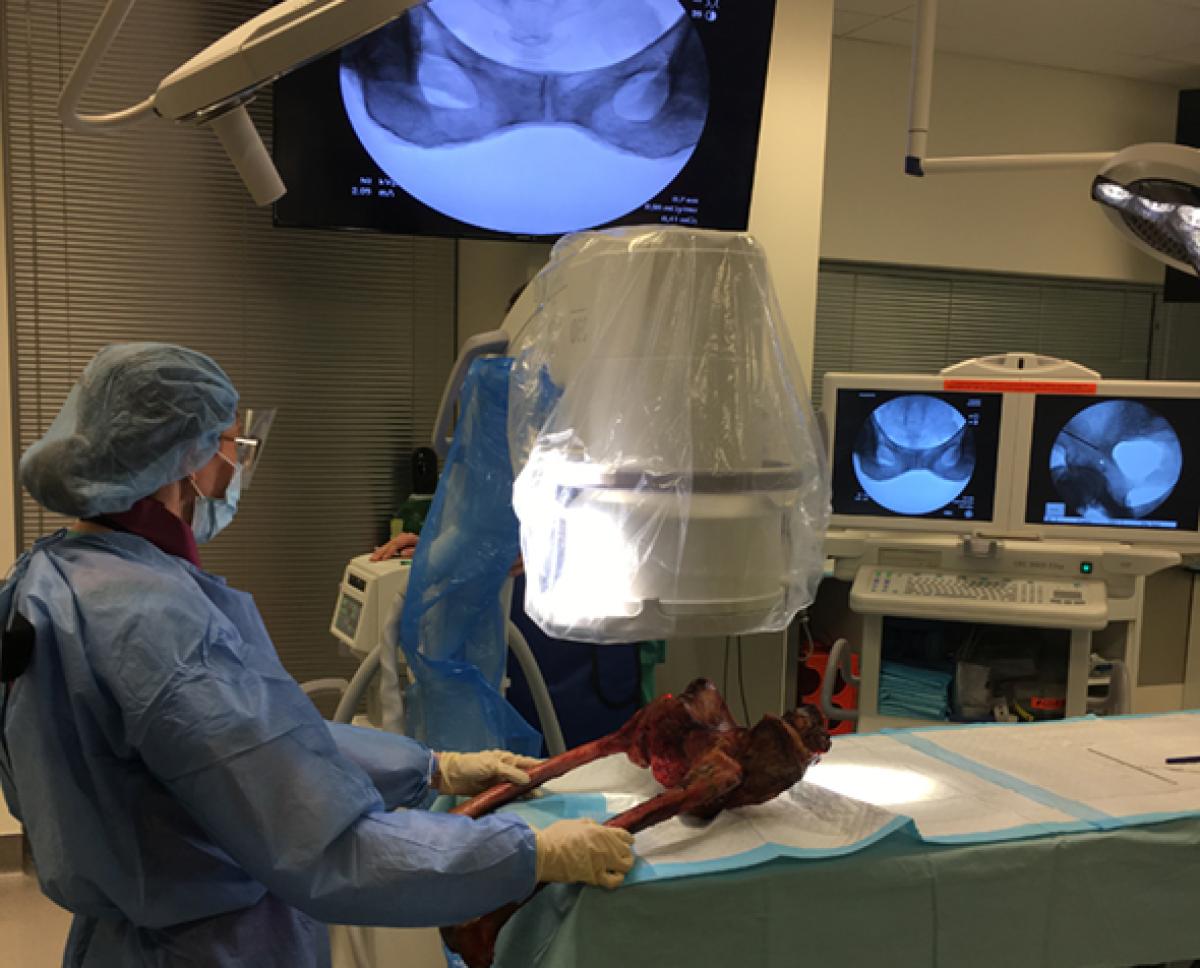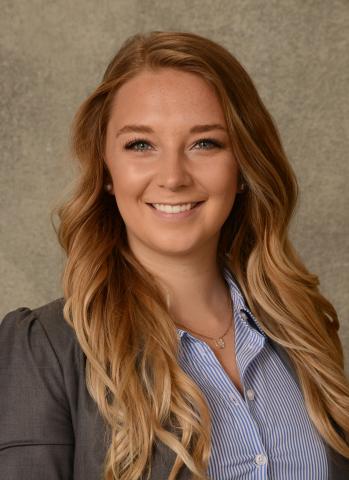Cognitive Neuroscience Alumna Gives Back Through Research
Jenna Powell hopes to make a difference through orthopedic research in her first job post-graduation

Two years haven’t yet passed since Jenna Powell turned her tassel and collected her University of Denver bachelor’s degree, but already, she’s running nearly a dozen studies as clinical research coordinator at Children’s Hospital Colorado’s Musculoskeletal Research Center.
On any given day, you can find her counseling families enrolling in experimental trials, observing surgeries in the operating room, or analyzing data, writing and publishing. “I am walking research through every phase, from implementing it and making sure it’s up to compliance, to actually collecting the data, to writing it up,” says Powell, who double majored in biology and psychology as part of DU’s cognitive neuroscience program.
Her research focuses on hip surgery, where she sees patients dealing with hip dysplasia, hip impingement and cancer. These often debilitating conditions are all the more challenging when the patients are children.
“Hip surgery is a fairly new field in kids,” she says. “The normal treatment for hip surgery is just to replace the hip, but we can’t do that for tiny people. This field, [where we think about] how we can preserve the joint and operate on the joint to make it healthy and functional for the entire life span, is new and groundbreaking.”
Take one of Powell’s current studies, testing a laser designed to monitor blood flow during a particularly risky surgery. “We want to be able to determine the best possible way to monitor that,” Powell says. “As a researcher, what I can find and study can change how we care for thousands or even millions of patients. If this laser ends up working, this could be the new standard of care in surgeries across the world. That’s what drew me to research: the sheer numbers and the ability to help health care systematically.”
It’s not just the challenge that pulls Powell to her research. “There is this brightness and lightness,” she says of the children she helps treat. “The patients come in with these incredibly hard, rare disorders. We see these really bizarre looking pelvises and thigh bones. You would think if an adult came in with this, they would be screaming or unable to walk. The resiliency kids carry through their lives and their ability to heal is just unbelievable.”
Powell has also relished the opportunity to work with current DU students like Lukas Sloan and Sydney Cutler, whom Powell oversaw when she served as summer internship coordinator for the 2018 program. “Having them on board and being able to help be a mentor and make sure they had the support and experience of working in a hospital as large and as reputable as this, I hope it really does give them a leg up, and it was incredibly rewarding, even for just 10 weeks, to be a part of their career,” she says.
Powell’s appointment typically lasts two or three years, and when it ends, she hopes to jump into medical school with the goal of working as a research physician specializing in pediatrics for underserved populations.
That appetite for a life of service was cultivated during her DU days, when she traveled to Panama and Nicaragua with Global Medical Brigades. “Every spring break, we went and assisted local physicians … giving primary care at a church or school in communities that were hours and hours away from a big city,” she recalls. “That was my first exposure to horrific poverty and realizing how challenging it can be to access things we take for granted. It really shaped my view of health as a human right. I would like to be an advocate for my patients in the future.”








